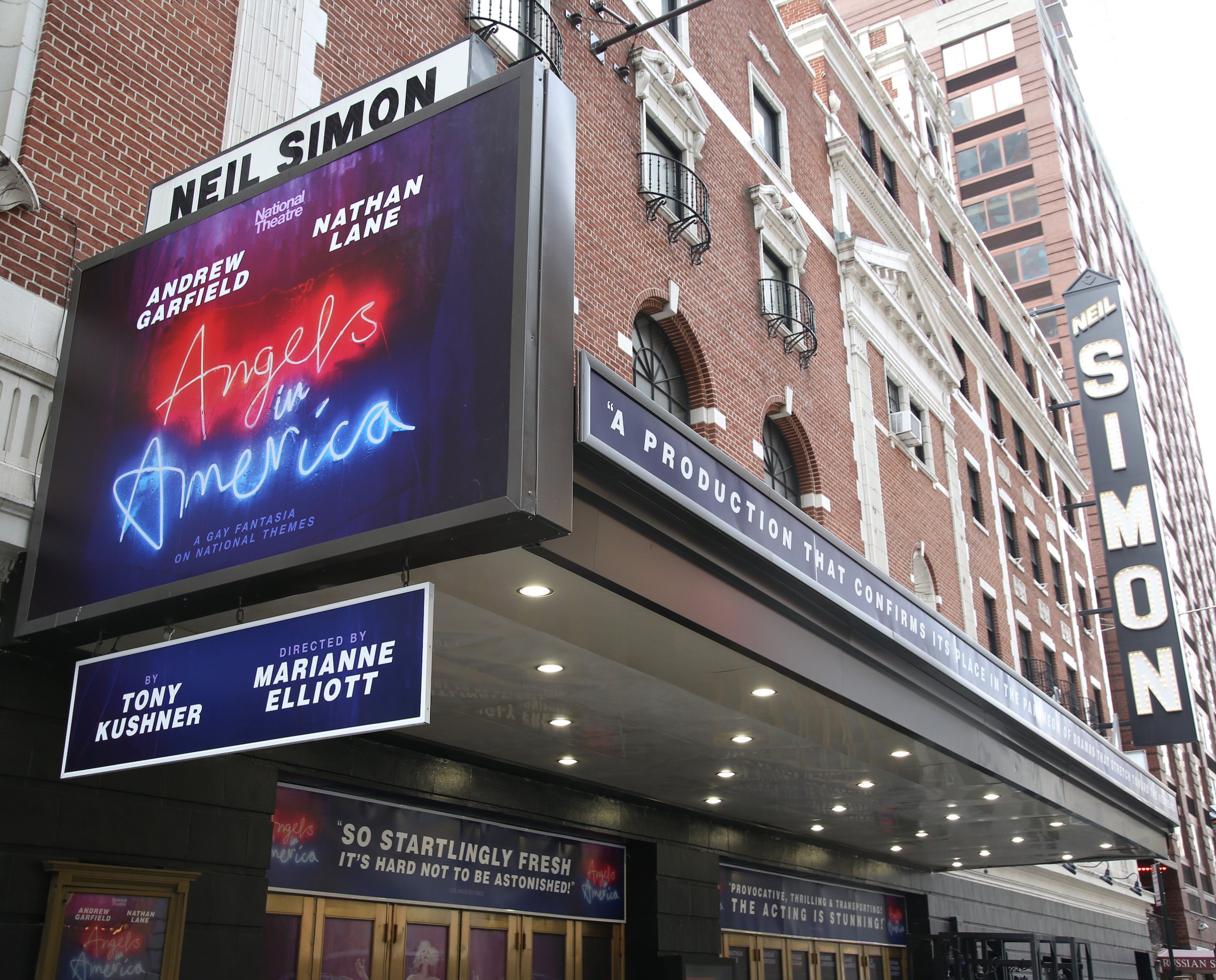
When Angels in America returns to Broadway on Friday, in a production starring Andrew Garfield and Nathan Lane, it will encounter a very different world from the one in which the play debuted around 25 years ago. In the intervening years, HIV and AIDS — the crisis around which so much of the Tony Kushner epic revolves — ceased to be the “death sentence” they once were, and the LGBTQ community won major political victories across the United States and elsewhere. But, as Nathan Lane recently told TIME, that doesn’t mean the play doesn’t still have meaningful lessons for the world of 2018.
That political side has always been part of what makes Angels so significant in the history of American theater. TIME’s William A. Henry III first reviewed the play in late 1992, after it had already debuted in San Francisco, won awards in London and run in Los Angeles — all before its 1993 Broadway opening. Though he found some of the acting “bland,” it was clear from his review that there was a reason why Angels was making such waves:
The central visual image of this season’s most eagerly awaited American play is a towering wall, like the facade of some Greek Revival government colossus, with two jagged cracks running from top to bottom. Before a word is spoken, this symbol — with its promise of that facade’s eventually cracking wide open — conveys the aura of physical decay and revolutionary social change that drives Tony Kushner’s 7 1/2-hr. epic about AIDS, gay liberation and the breakdown of the Reagan era’s sanctimonious hypocrisy…
Henry explained that one of the main reasons behind the anticipation for Angels in America was that the play represented a new era in the cultural depiction of gay life: “The author and the delighted spectators reflect an evolution in attitude akin to what happened among blacks and women: one generation sought empathy; the next demanded justice; the generation equivalent to Kushner’s just flat-out asserted equality and spurned any more debate.”
Henry returned to the play about a year later, to cover the Broadway production, now complete with both parts, Millennium Approaches and Perestroika. Its box-office success — despite the early days of the Perestroika production being mired in behind-the-scenes drama ranging from rewrites to what Henry called “stagehand mania” — had defied any fears that the subject matter would only appeal to a niche audience.
And it was, as the piece noted, “hugely significant”:
More than any other work in a theater era of gay self-assertion, it has brought that perspective to the mainstream. Angels was not only the first gay-centered play to win the Pulitzer Prize for drama, it came to the fore just as the argument about gays in the military was putting the gay cause at center stage for the first time in U.S. history. With its aggressive scorn for Ronald Reagan and Republicanism; for Mormons and moralizing; and its demonic view of lawyer-dealmaker Roy Cohn, a gay-bashing closet gay and a top-level G.O.P. influence peddler for more than three decades, Angels disproved truisms about the unmarketability of political drama. Instead it compellingly reasserted the theater’s place in public debate. Hearteningly to theater partisans, Angels generated excitement about a drama comparable to the biggest buzz about musicals. Above all, Angels demonstrated that plays can matter in a pop culture dominated by electronically recorded performances rather than live ones.
That was why, despite the show’s rocky road to the stage and any nitpicking that might be done over the script or acting — Henry, for example, found the second part too quick to declaim its theories about the world, rather than letting the audience arrive at those conclusions — the team behind it only expressed pleasure with the result.
”When we look back on this in five or 10 years, we are not going to remember our exasperation at the script coming in late or how much money it cost,” Rocco Landesman, president of the theater-ownership group financing the 1993 production, told TIME back then. “We are going to remember that we are the producers of Angels in America, the most important play in a generation.”
More Must-Reads from TIME
- Inside Elon Musk’s War on Washington
- Meet the 2025 Women of the Year
- The Harsh Truth About Disability Inclusion
- Why Do More Young Adults Have Cancer?
- Colman Domingo Leads With Radical Love
- How to Get Better at Doing Things Alone
- Cecily Strong on Goober the Clown
- Column: The Rise of America’s Broligarchy
Write to Lily Rothman at lily.rothman@time.com